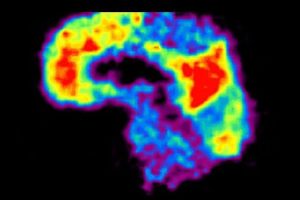CMS Scraps Limits on Amyloid PET Imaging

The Centers for Medicare & Medicaid Services (CMS) has expanded coverage of brain amyloid positron-emission tomography (PET) imaging for the diagnosis of Alzheimer’s disease (AD).
The CMS decision, announced October 13, removes the national coverage determination, ending coverage with evidence development for PET imaging and allows Medicare coverage determinations for this imaging under the Social Security Act.
The new CMS policy to pay for amyloid PET scans beyond clinical trials removes the current limitation of one scan per lifetime.
Amyloid PET scans can be used to “confirm evidence of brain amyloid pathology to select appropriate patients for proven anti-amyloid treatments depending on individual patient characteristics,” the CMS said in its decision memo.
“Appropriate patient selection is key to ensuring benefits outweigh harms of newly developed drugs targeting amyloid,” the CMS added.
Since July, when the US Food and Drug Administration (FDA) granted traditional approval of lecanemab, CMS has covered PET scans when used to determine whether treatment with the anti-amyloid is appropriate for a patient.
In a statement applauding the CMS decision, Maria C. Carrillo, PhD, chief science officer for the Alzheimer’s Association, said that broader access to amyloid PET scans will allow for “earlier and more accurate diagnosis, and better care management. Their use can lead to better health outcomes for people living with Alzheimer’s or another dementia.
“Amyloid PET scans are a proven tool and can be an important part of Alzheimer’s diagnosis and treatment,” Carrillo added.
She also noted that the CMS decision reflects FDA “confidence in this technology after many years of evaluation.”
As previously reported by Medscape Medical News, in the Imaging Dementia — Evidence for Amyloid Scanning (IDEAS) Study, amyloid PET imaging for patients with suspected mild cognitive impairment or dementia resulted in more accurate diagnoses and often altered patient management.
“In the new era of treatment, amyloid PET scans become even more valuable as they are used to determine diagnosis and eligibility for FDA-approved treatments,” Carrillo said.
“Additionally, recent clinical trial results tell us it is also useful to track changes in a person’s level of beta amyloid throughout the course of treatment because it may be possible to pause treatment as the amyloid beta levels decrease,” Carrillo added.
Amyloid PET imaging also helps distinguish AD from other causes of dementia or memory loss and helps ensure appropriate medical care and treatment, the Association said.
In issuing its new policy, the CMS noted that specific details of the amyloid PET imaging coverage will be made by the Medicare Administrative Contractors (MACs).
The Alzheimer’s Association is urging the MACs to rapidly implement broad and equitable coverage for all Medicare beneficiaries.
For more Medscape Psychiatry news, join us on Facebook and X.
Source: Read Full Article




